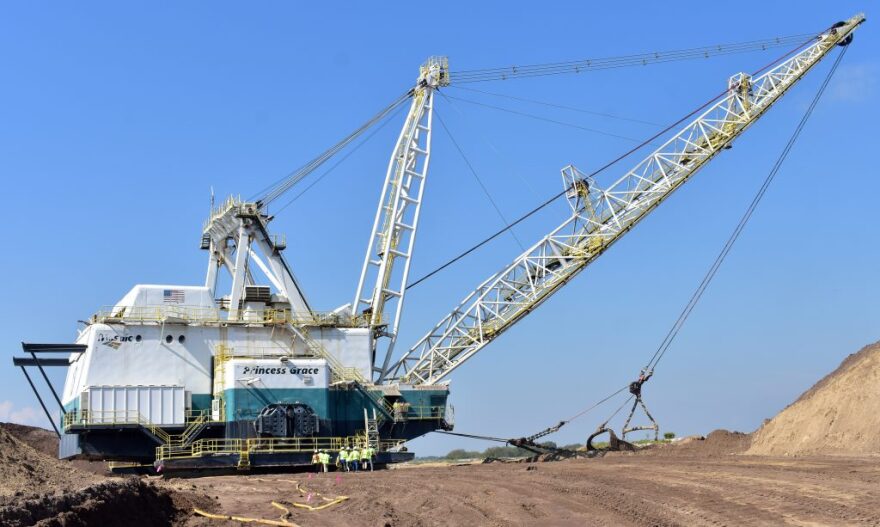The U.S. Environmental Protection Agency and Mosaic Fertilizer on Friday argued that a federal appeals court should reject a lawsuit challenging the use of phosphogypsum, a radioactive byproduct of the phosphate industry, in a Polk County road project.
Attorneys for the EPA and Mosaic, a major player in the phosphate industry, filed briefs at the 11th U.S. Circuit Court of Appeals pushing back against the challenge filed by the Center for Biological Diversity.
The lawsuit centers on using phosphogypsum in base material for a pilot road project on Mosaic property. The Center for Biological Diversity, in part, has contended a 1992 federal rule bars using phosphogypsum in road projects and pointed to potential cancer risks from the substance, which is typically stored in huge stacks, known as “gypstacks.”
The EPA approved the pilot project in December, with attorneys for the agency and Mosaic arguing in Friday’s briefs that the agency had discretion to sign off on it.
“At bottom, EPA approved a site-specific project presenting total risks that are at least an order of magnitude less than placement of phosphogypsum in a stack,” EPA attorneys wrote in a 68-page brief.
ALSO READ: Environmental group targets EPA approval of Mosaic's Polk road built with phosphate waste
Mosaic attorneys contended that the Center for Biological Diversity’s “real concern is that the pilot will serve as a gateway to broader beneficial use of phosphogypsum in road base.” The company also said in its 67-page brief that construction on the pilot project started during the week of Aug. 25.
“It (the Center for Biological Diversity) has not articulated any real issue with the limited pilot project. Nor could it,” the company’s attorneys wrote. “Mosaic is simply excavating phosphogypsum stored in a stack on its property, moving the phosphogypsum less than a mile on its property and then incorporating that material into road base on its property. Petitioner’s (the Center for Biological Diversity’s) nearest member lives five miles away. There won’t be any more phosphogypsum generated as a result of the pilot, and it won’t be closer to any of petitioner’s members.”
The Center for Biological Diversity filed the challenge in February, about two months after the EPA approved the project for Mosaic’s New Wales facility.
The issue of using phosphogypsum in road-building has long been controversial. Florida lawmakers and Gov. Ron DeSantis in 2023 approved a bill that authorized the state Department of Transportation to conduct a study of using phosphogypsum in road projects.
ALSO READ: EPA faces lawsuit after allowing Mosaic to build Polk test road with phosphate waste byproducts
Phosphogypsum includes radium, which decays to form radon gas. Radium and radon can cause cancer, and phosphogypsum is managed in the giant stacks to try to limit radon emissions, according to information on the EPA’s website.
In fighting the road project, the Center for Biological Diversity has cited concerns about radon emissions and potential air and groundwater pollution.
“EPA is required by its own regulation to assess the maximum individual risk of the proposed use, and even if that use is a pilot project, EPA must evaluate meaningful cancer risks to the public,” the group said in a July 11 brief. “EPA fails to assess the maximum individual risks from phosphogypsum in road construction by limiting the pathways considered and accepting deficient sampling data. EPA is ignoring an important aspect of the problem and arbitrarily approving a deficient application.”
But the EPA said the project is limited to a 3,200-foot road at a facility where Mosaic already stores phosphogypsum.
“Based on EPA’s full assessment of the evidence, EPA reasonably concluded that the road pilot project is at least as protective of human health as placement of phosphogypsum in stacks,” the agency’s attorneys wrote.



